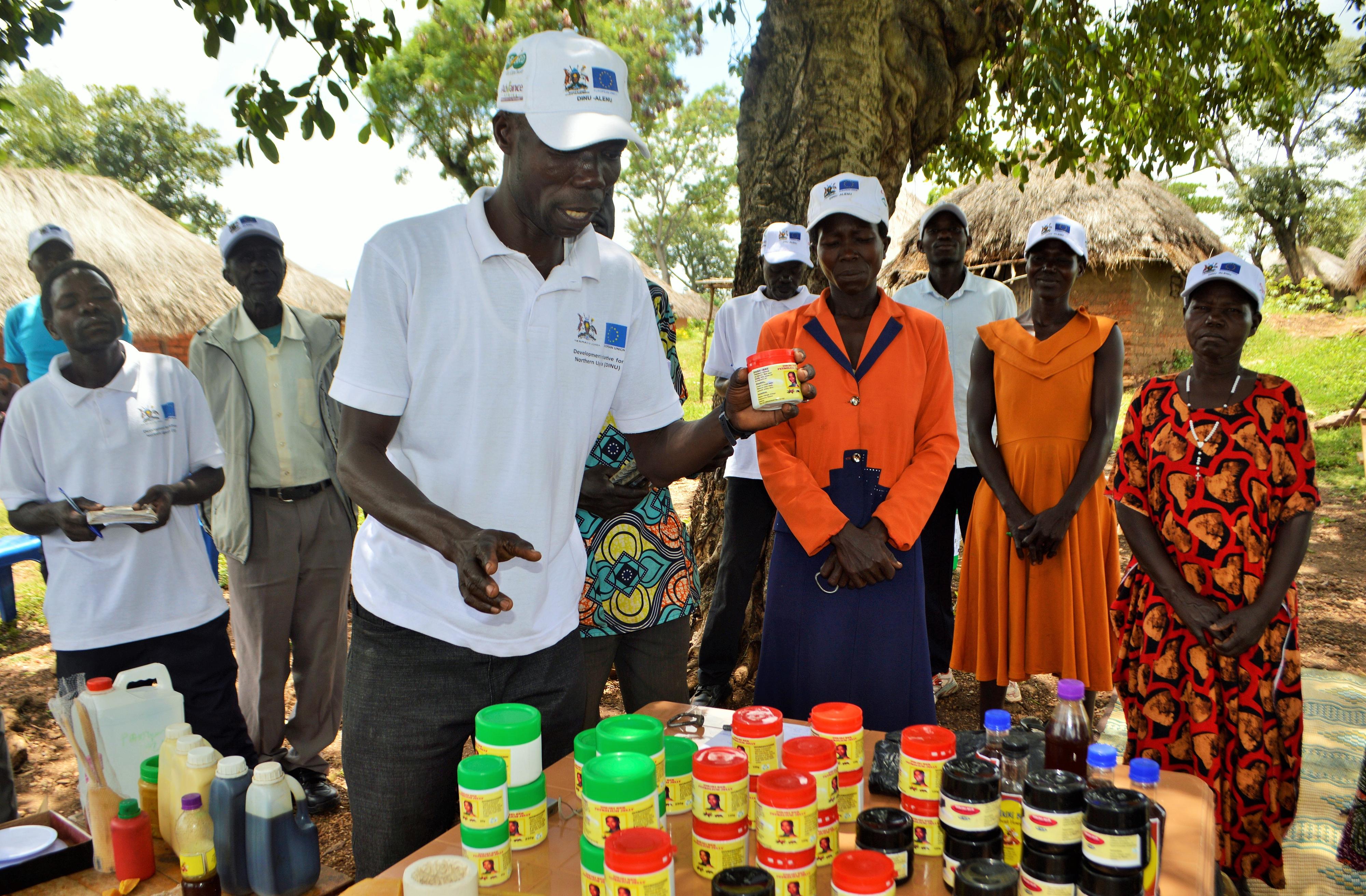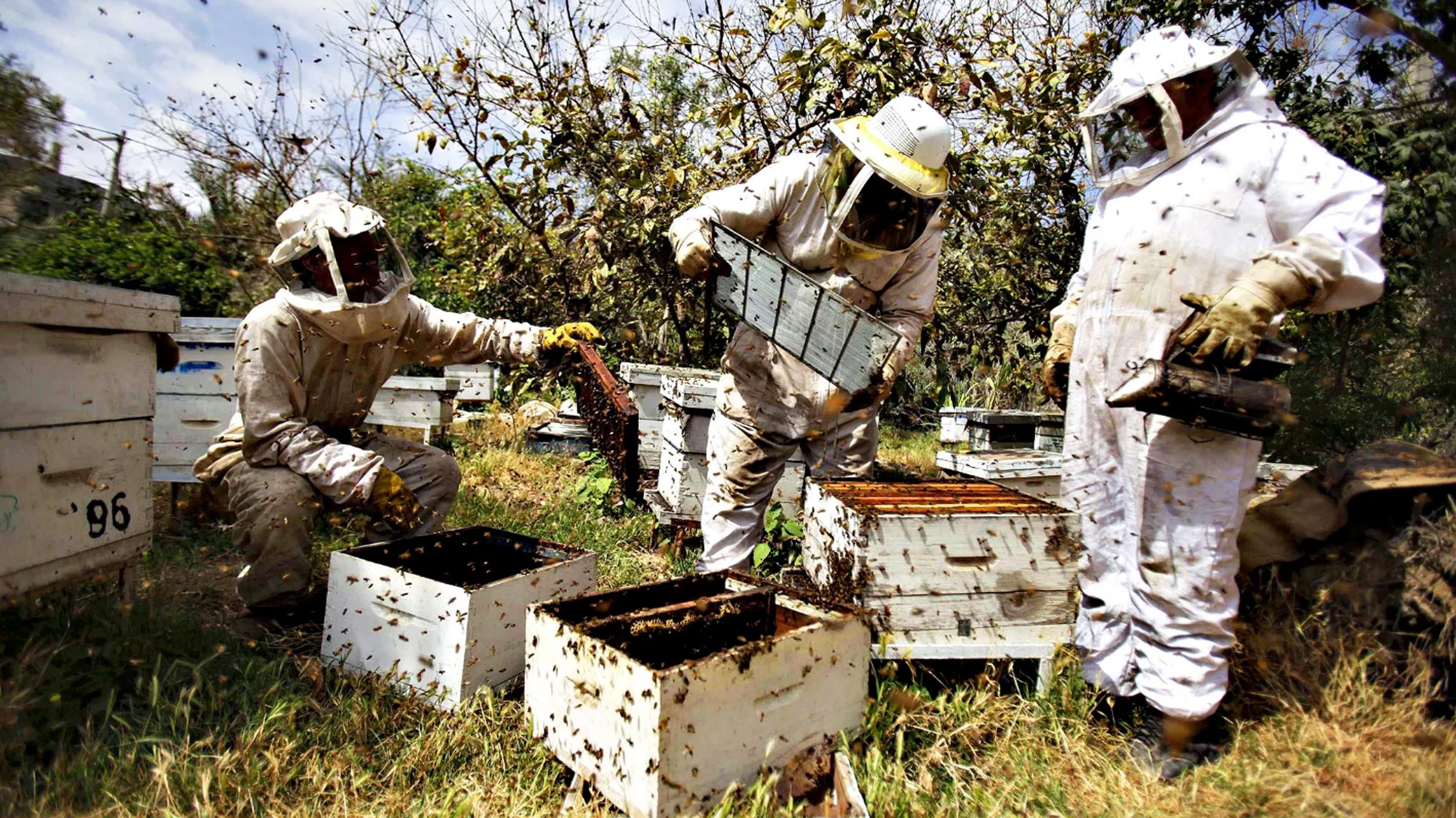Nebbi farmers reap big from beekeeping

Mr Jerry Obedirwoth explains the various bi-products which they make from honey in Oboko Village, Nebbi District, on October 25, 2022. PHOTO/ FELIX WAROM OKELLO
What you need to know:
- The venture has changed fortunes of the hitherto impoverished locals.
For many years, Ms Maureen Anirwoth, 38, suffered from poverty despite practising subsistence agriculture.
She was unable to pay school fees for her children, feed well and meet other family expenses. She even suffered from skin diseases due to poor nutrition.
Ms Anirwoth is among hundreds of residents of Oboko Village, Atego Sub-county, Nebbi District, who for many years suffered poverty for decades because they lacked knowledge and skills of earning from agricultural products.
But thanks to financial literacy training, the residents’ fortunes have changed.
Ms Anirwoth and farmers were trained in beekeeping using money realised from a village savings and loan association (VSLA).
Under their group codenamed Dikiri Ber, the 25 members are now selling honey and processing its by-products before selling them to make profits.
Ms Anirwoth says she has since learnt how to make candles, shoe polish and petroleum jelly from honey. The petroleum jelly they make from honey has helped her to get relief from the skin disease and her life has since changed.
“My face and my body is now shining because I use the petroleum jelly that we make. I suffered a skin disease that affected my body. The product from honey has worked wonders on me,” she told Daily Monitor in an interview on Tuesday. The group was trained by Caritas Switzerland and Agency for Accelerated Rural Development (AFARD) under the Development Initiative for Northern Uganda (DINU) that is supported by the European Union last year.
“I now plan to get more land from the money I get from our savings group because this will make me plant more crops, which I can sell and earn a decent living,” she said.
Besides the apiary, the group members are engaged in other activities such as goat rearing, cassava production and poultry keeping. According to Mr Jerry Obedirwoth, who was trained by the NGO as a VSLA mentor, the group was supported with farm tools such as 125 beehives, a solar dryer, and two mobile phones for marketing their produce, three weighing scales and a VSLA box for storing their savings.
He said the group has so far made 1,000 pieces of propolis in the last three months, about 200 pieces of shoe cream, 400 pieces of 100 gram petroleum jelly, 600 pieces of 50 gram of petroleum jelly and 400 pieces of 250 gram of petroleum jelly. These are sold locally and at trade exhibitions in Gulu and in Kampala.
The executive director for AFARD, Dr Alfred Lakwo, said: “Involvement of women is important because once there is money in their hands, they can ably plan for the families. We want to move these households out of poverty through agriculture. They only need some skills in modern agriculture that is why the group in Atego Sub-county is able to make by-products out of apiary.”




